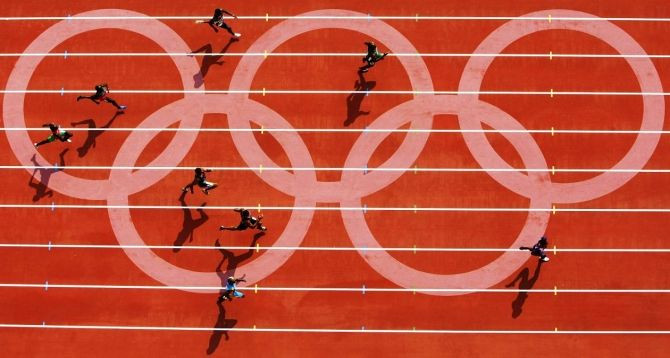Why Olympians Live Almost 3 Years Longer Than the General Population

Medal-winning Olympians live longer than the general population, regardless of what country they are from, what medal they won, or what type of sport they played, according to a new study published in the Christmas issue of the British Medical Journal.
Researchers examined the life expectancy of 15,174 Olympians from countries like the U.S., Germany, Scandinavian countries, Russia, United Kingdom, France, Italy, Canada, Australia and New Zealand. The athletes included in the study had won medals between 1896 and 2010. Researchers matched these athletes with general population groups by country, sex and age.
The results found that overall, Olympic medalists lived an average 2.8 years longer than the general population in eight of the nine countries in the 30-year follow-up.
While the color of the medal may matter at the competition, researchers found when it came to longevity, it didn't matter. Gold, silver and bronze medalists all enjoyed roughly the same survival advantage over the general population. Researchers found that the survival advantage also occurred across all sports, like soccer, basketball, track and field, endurance activities and even power sports such as wrestling and weightlifting. Researchers noted that power sports gave a smaller, but still significant life-lengthening benefit.
While researchers did not study the reasons for the Olympic longevity, they posited a few theories. Their long life could be attributed to their fitness. Researchers said that athletes are in general healthier than the average person, and Olympians are considered the epitome of physical fitness and healthy nutrition. Genetics could contribute to part of their fitness, but their training environment most likely increases any potential genetic advantages.
Researchers also say that it's possible that the wealth and fame Olympic athletes enjoy gives them more opportunities to have a healthier lifestyle because they have access to the highest quality diet and fitness regimens to keep them healthy for life.
"Evidence strongly indicates that higher socioeconomic status is associated with lower mortality. Improved nutrition, education, and access to medical services all mediate this effect," the authors wrote.
In another study, researchers measured the effect of exercise intensity on mortality later in life among Olympic athletes.
Researchers analyzed data involving 9,889 deceased athletes who had taken part in at least one Olympic Games between 1896 and 1936. Researchers said that together, the athletes represented 43 disciplines requiring different levels of exercise intensity and physical contact. High intensity sports were sports like cycling and rowing. Moderate intensity sports were gymnastics and tennis and low-intensity exercise were sports like golf and cricket.
After the researchers adjusted for sex, year of birth and nationality, they found that athletes competing in sports requiring high cardiovascular intensity or moderate cardiovascular intensity had similar mortality rates compared with athletes from low cardiovascular intensity sports.
However, researchers found that not all Olympic athletes enjoyed the same survival advantage. They found that athletes in high-impact sports with a risk of bodily collision like boxing and ice hockey had an 11 percent to 16 percent greater mortality risk compared to other athletes. Researchers said that the mortality risk reflects the accumulated effect of repeated collisions potentially harmful injuries during training and competition over time.
Experts writing in an accompanying editorial point out that people who do at least 150 minutes a week of moderate to vigorous intensity physical activity also have a survival advantage of one to several years compared with the inactive general population.
"Although the evidence points to a small survival effect of being an Olympian, careful reflection suggests that similar health benefits and longevity could be achieved by all of us through regular physical activity. We could and should all award ourselves that personal gold medal," researchers concluded.
Published by Medicaldaily.com



























